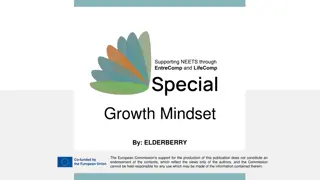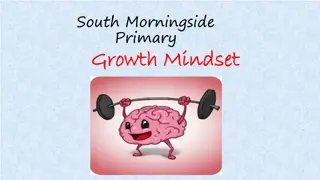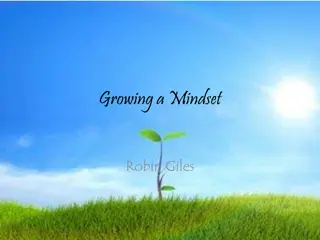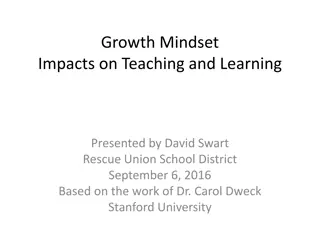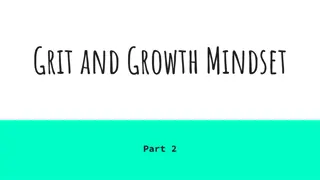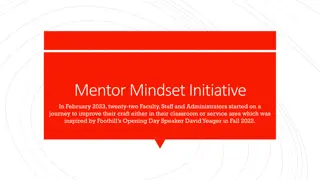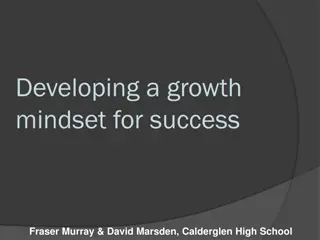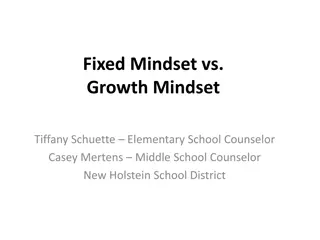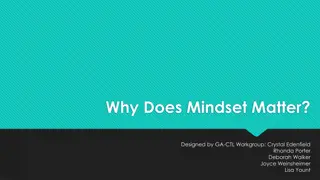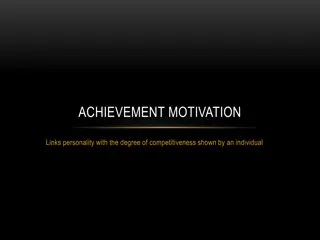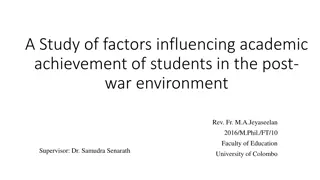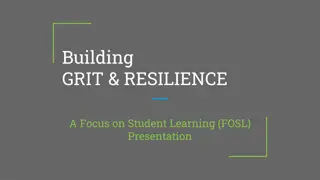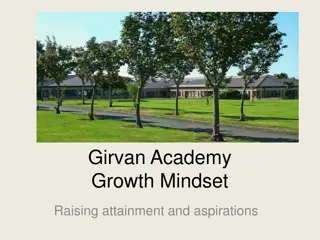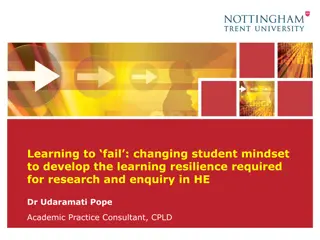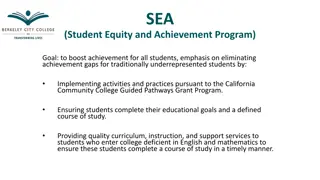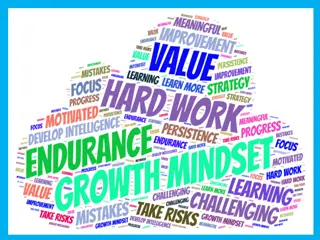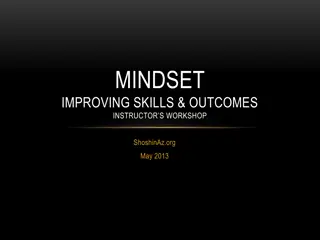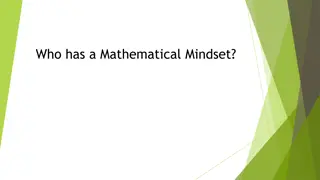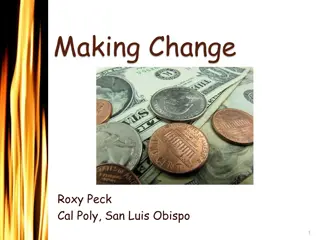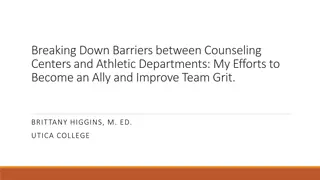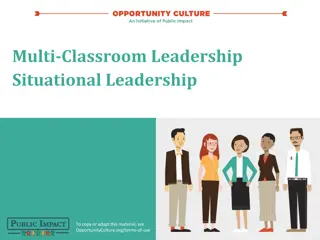Understanding the Impact of Mindset on Academic Achievement
Research findings highlight the significant influence of mindset on student achievement and persistence in academic and STEM fields. Teachers and parents play a crucial role in shaping mindset, while knowledge about brain development shifts the focus to learning and effort. Addressing ability beliefs among students, especially girls' doubts in science, is essential for promoting a growth mindset. Interventions and teaching strategies can lead to positive mindset shifts and improved learning outcomes.
Download Presentation

Please find below an Image/Link to download the presentation.
The content on the website is provided AS IS for your information and personal use only. It may not be sold, licensed, or shared on other websites without obtaining consent from the author. Download presentation by click this link. If you encounter any issues during the download, it is possible that the publisher has removed the file from their server.
E N D
Presentation Transcript
Ability Beliefs By MR LIGHTMAN,freedigitalphotos.net
Mindset: Critical Ability Belief -Fixed -Growth by KROMKRATHOG,freedigitalphotos.net
Research Findings Mindset is a powerful influence on students achievement and persistence academically & in STEM fields particularly. Mindset is learned. Teachers & parents can influence mindset Knowledge about brain development shifts the focus from looking smart to work on learning and effort; changing students mindsets changes their goal orientation, too. Stereotype threat can be mitigated by teachers of female and of minority students.
Findings about Ability Beliefs: Girls Doubt their abilities in science Momentary Skill 1.8 1.6 1.4 1.2 1 0.8 0.6 0.4 0.2 0 Boys Girls
Mindset A Teacher s Perspective By nattavut,feedigitalphotos.net
By pixtawanfreedigitalphotos.net Teach students their brain is malleable.
Results of Mindset Intervention: 7th & 9th Grade Growth Mindset 4.8 4.6 Mindset Intervention No Intervention 4.4 4.2 4 Pre test Post test End of Year
Students with initial fixed mindsets changed dramatically 5.0 Pre/Post for Students Starting w/ Fixed Mindset 4.5 3.8 4.0 3.6 3.6 3.5 3.4 3.5 3.0 Mean Student 2.6 2.4 2.3 2.5 2.1 2.0 2.0 1.8 2.0 Report 1.5 1.0 0.5 0.0 I work hard I know study techniques Hard means I'll learn Trouble paying attention The harder I study, the more successful I can succeed in school Pre-Program Post-Program
Writing a Letter Another Way To Teach about Mindset By gubgib,freedigitalphotos.net
The Teenage Brain by a Teen Focus on Learning Strategies Ned Talk By dream designs,freedigitalphotos.net
Teachers MATTER Beliefs in Malleability of Intelligence depended on teacher Student gains in growth mindset and grades and decrease in performance orientation depended on teacher. Those improvements related to mindset messages and focus on conceptual understanding over performance during class!!!!
Teachers matter for intervention effectiveness
Mindset Discourse during Science Instruction Celia Donna Statement Categories Average per 50 min class period Average per 50 min class period Promotes Growth Mindset Undermines Growth Mindset Focuses on Study Skills Refers to Brainology Approximately once Nearly twice Approximately twice Approximately once < every other class Once every class Once every third class Once every class
Promoting Growth Mindset Teach students that intellectual skills can be acquired. Recognize EFFORT not Intelligence Encourage PROCESS rather than simple right answers. Teach Study Skills, Have them choose: BRAIN By digitalart,freedigialphotos.net
Stereotype Threat Students are well aware of stereotypes about their ability as members of certain groups (racial/ethnic/gender). This knowledge leads them to underperform when they interpret the task as one in which they will be judged. ST makes people anxious. They try too hard and underperform on complex tasks. Students who are most vulnerable are those that care the most. Starts in 6th grade and is a huge factor in college. What to do: Wise feedback, combat fixed mindset, provide role models, teach emotion focused coping (next week).
Wise Feedback Evaluate the essay using the rubric Work with your partner to provide wise feedback to the student Wise Feedback: 1. Clear constructive feedback about what is wrong and needs to be improved 2. A statement of high expectations with encouragement (I think you can meet these expectations)


